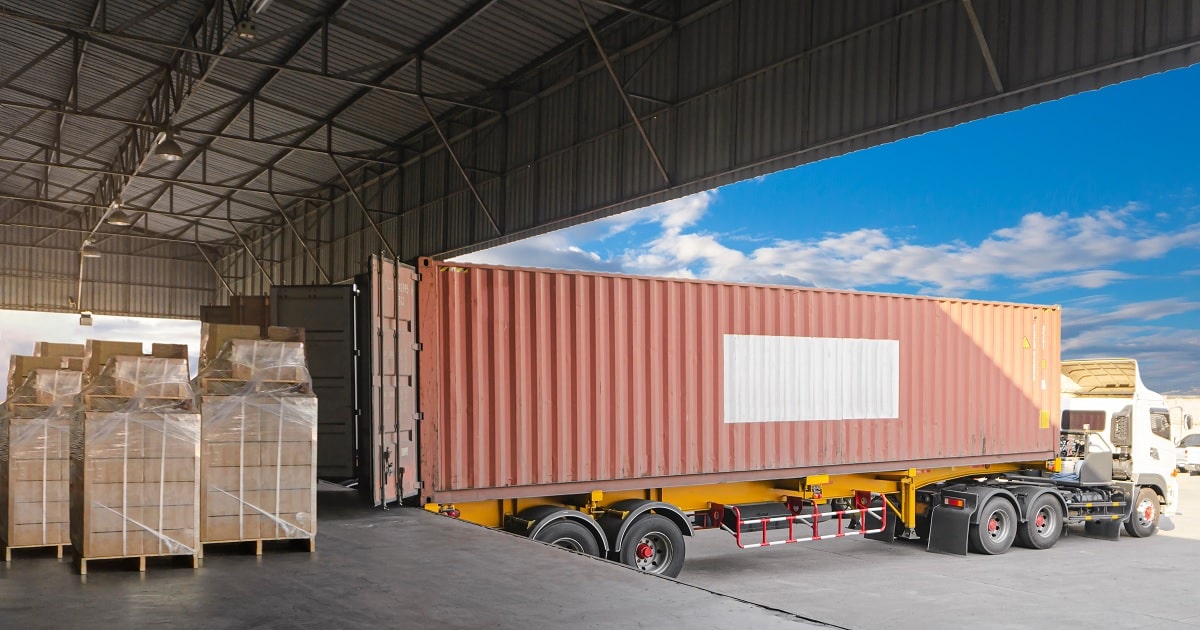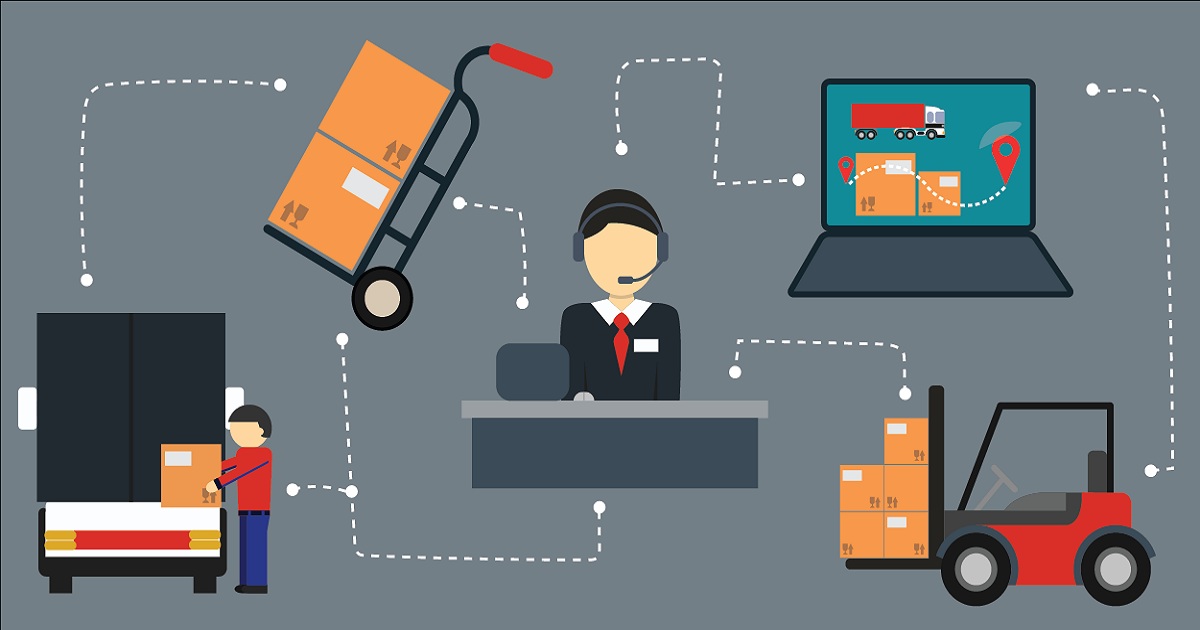
Warehousing and Distribution
Article | June 16, 2023
In the past couple of years, supply chain management has witnessed massive disruption. The implications of the pandemic have put pressure on manufacturers to revisit and reimagine how they manage their supply chains. This is why ERP software is so mission critical in supply chain management. It not only helps supply chain chiefs reduce overhead costs but also enhance efficiencies and timely deliveries.Here are a few ways ERP plays a role in supply chain management to keep it moving.
Complete Visibility
Having a 360-degree view of the supply chain is integral to making the right decisions regarding procurement and purchase of materials and inventory. It also allows suppliers to have complete control and course correct when necessary. The insight into the complete supply cycle allows suppliers to respond to customer queries better.
Inventory Tracking
ERPs are truly a one stop shop for manufacturers. They feature extensive inventory tracking on one system so manufacturers are in the loop about inventory control and can better optimize their inventory and resources. For manufacturers it is crucial to know where their inventory is, what has been shipped, what is on hand at all times. With ERPs, it becomes cheaper to keep a stock of the inventory and place orders when it’s running low.
Vendor Performance
Vendor performance is an essential aspect of supply chain management. Being able to compare vendors, measure certain quality and quantity metrics and identify bottle necks help suppliers choose the right vendor as well as gives purchasing departments the power to negotiate for better pricing by consolidating purchase. ERPs allow suppliers to do all the above and more.
Procurement
Procurement of goods can be a complex process if done without the right tools. It also impacts the whole supply chain so it is doubly imperative to ensure the procuring and supply of goods is on time. This is especially true in an environment of custom manufacturing. Add to that the requirement of procuring products with lengthy lead times, manufacturers need to take into considerations product that need to be ordered long before they are even designed. ERPs allow manufacturers to keep all departments including engineering and warehousing to work in sync and plan to procure goods on time.
Real-time Reports
Reporting is labor intensive and can be inefficient when it comes to gathering and processing data. With ERPs, manufacturers can generate reports in real-time and all manual data collection processes are replaced with automation, saving time and money in viewing the insights into the movement of products in the supply chain. It enables manufacturers to get a better understanding and make timely decisions that improve the overall efficiency of the supply chain.
To Conclude
ERP systems offer endless opportunities for manufacturers to improve their processes, save time and resources and optimize and enhance inventory planning. With the right tools, it is possible to establish supply chain management that outperforms and is resilient even in disruptive times.
Read More

Supply Chain
Article | May 26, 2023
Oracle, a leading provider of computer technology, published a paper analyzing how supply chain managers should use change as a catalyst in "inspiring and engaging employees." In the report, Oracle highlights how organizations across the world are going through radical shifts in the way they operate.
Customers need quick, convenient, and customized solutions today. Employees also have higher expectations, looking for companies that are a match for their values, provide flexible working arrangements, and offer cutting-edge tools. Shareholders and investors also want more, which forces businesses to focus on making money in ways that are sustainable and diverse.
See Change as an Opportunity
The companies that are most successful, according to Oracle, are those who see change as just another opportunity to reinvent, and the company lists four ways supply chain leaders might find such an opportunity:
Boost employee engagement
Aim for sustainability and responsibility in management
Be quick to respond to disruptions in the supply chain
Exceed consumer expectations
In the paper, Oracle reports that instead of adapting to the change, organizations must be able to stay on top of challenges and prepare well in advance.
Align with an Employee-Centred Culture
Leaders must be able to attract well-matched talent, with the skills to not just fulfil job roles but also drive innovation. Today, people value a work-life balance where they have time to pursue their non-work interests, spend time with their families, and create a diverse, and inclusive world. According to Oracle, this is a significant consideration, and organizations that meet the demands of this new workforce will have a competitive edge in hiring the top talent.
Looking Forward
The Great Resignation has been a hot topic in HR, but the truth is it affects all aspects of business, and importantly, the supply chain, and in the end, the ability to provide smooth customer experiences. HR, customer experience, and supply chain leaders must synergize to become an employer destination to reckon with in order to succeed.
Read More

Warehousing and Distribution
Article | June 27, 2023
Maintain a competitive advantage by effectively managing supply chain. Discover the potential opportunities and enhance the career in logistics with warehousing and distribution certificates.
The rapidly changing and fiercely competitive business landscape necessitates that professionals must go an extra mile to maintain a leading edge and propel their careers forward. Taking the initiative to pursue warehousing and logistics certifications can significantly boost your career. By obtaining a recognized designation, you demonstrate a steadfast dedication to your profession, enhancing your appeal to potential employers. Furthermore, earning a respected certification can open doors to advancement opportunities and increase making potential within your current organization. Moreover, pursuing ongoing education offers rewards, keeping you engaged and ensuring you remain at the forefront of industry developments.
1. Supply Chain Warehousing Certificate
Supply Chain Warehousing Certificate is a comprehensive program for individuals seeking expertise in warehousing and logistics. Developed by ASCM and Prologis, it covers essential topics such as inventory management, packaging, shipping, and sustainability in logistics. This self-paced course offers flexibility and can be accessed on mobile devices. Earning one of the exclusive warehousing and distribution certifications demonstrates your knowledge and expertise in managing inventory and helps you stand out in the competitive job market. Employers will recognize your ability to handle shipping processes, improve order fulfilment, and make informed transportation decisions.
2. SAP Extended Warehouse Management Training
Enhance your expertise in warehousing management with this top-tier online certification course. Gain in-depth knowledge of extended warehouse management, including warehousing structures, expert data, and warehouse organization. This warehousing and distribution course includes techniques for processing received and shipping goods, slotting, replenishment methods, and physical inventory. Delivered through video and text-based modules, it provides comprehensive warehousing and distribution center operations training. In addition, this course will expand your career opportunities and help you excel in the dynamic field of warehousing management.
3. Storage and Distribution Certification
Storage and Distribution Certification is a complete course that addresses the critical need for supply chain safety and integrity in today's complex logistics landscape. This supply chain warehousing certificate is focused on distribution and is designed for warehousing, logistics, and supply chain management professionals. The program covers supply chain visibility, risk management, and optimizing physical-flow networks. There are no specific eligibility criteria for this course, making it accessible to a wide range of individuals seeking to enhance their skills and knowledge. By obtaining this one amongst many warehousing certifications in this course , you'll be equipped with the expertise to mitigate supply chain vulnerabilities, improve operational resilience, and meet the evolving demands of the modern marketplace.
4. Certified International Warehouse and Inventory Manager
The Certified International Warehouse & Inventory Manager certification offered by Blue Ocean Academy in Dubai and Abu Dhabi provides professionals with comprehensive training in warehouse management. Blue Ocean Academy, recognized as an industry leader in this field, offers the best warehouse and inventory management training courses. The Warehouse Management Certification Program focuses on the strategic role of warehousing within the broader context of supply chain management and logistics. Participants will gain knowledge and skills in the latest methods for storing and safeguarding high-value inventories and best practices for modern warehousing. The program also covers techniques to achieve accurate record-keeping and successful cycle counting, methods for conducting warehouse audits, and the operational and financial performance aspects of warehousing.
5. Warehouse Excellence Certification (WAREX)
Developed by the Institute of Supply Chain Management (IoSCM), Warehouse Excellence Certification (WAREX) helps to elevate your warehousing career. This logistics warehousing and distribution program offers a range of qualifications catering to professionals at various stages of their logistics, warehousing, and distribution journeys. WAREX covers a broad spectrum of skills and knowledge, from entry-level to strategic management positions. Whether you're new to the industry or a seasoned professional, this certification equips you with the expertise to optimize warehouse operations, enhance inventory management, and drive overall supply chain efficiency.
6. Six Sigma Certification in Warehousing: Overview & Career Options
Six Sigma Certification in warehousing is a specialized program that equips professionals with the tools and methodologies to optimize warehouse operations, eliminate defects, and achieve near-perfect efficiency levels of 99.997%. By applying Six Sigma processes, businesses can identify and solve warehouse problems, resulting in improved customer satisfaction, increased revenue, reduced errors, efficient inventory management, and enhanced overall profitability. With this warehouse certification program, you'll stand out in the job market with higher employability, salary potential, and opportunities with renowned companies like Amazon, Samsung, Boeing, FedEx, DHL, and UPS.
7. Certified International Warehouse & Inventory Manager
This certificate in warehousing management is specifically designed to equip professionals with the necessary skills and knowledge to excel in the dynamic world of warehouse operations. This program covers a wide range of essential topics, from strategic warehouse management to inventory optimization and sustainable practices. Participants will learn about warehouse design, storage techniques, materials handling, inventory control, performance measurement, warehouse management systems, risk management, and sustainability. This warehousing and logistics certification is ideal for warehouse managers, logistics professionals, supply chain executives, and individuals seeking to enhance their expertise in warehouse operations.
8. WHSEOPSCERT - Warehouse Operations Certificate
The Warehouse Operations Certificate program offers essential training to develop fundamental warehousing skills and gain certifications in material handling equipment. This program is crafted to enhance participants' employability within the warehousing and distribution industries. It covers various topics, including warehouse operations, supply chain fundamentals, order fulfillment, shipping concepts, and lift truck certification training. The courses provide a comprehensive understanding of warehouse functions, inventory management, storage procedures, supply chain principles, and problem-solving strategies. Upon completion, graduates will be equipped for entry-level positions such as Order Puller, Warehouse Technician, Logistics Analyst, and more.
9. JHSC Certification Part Two - Warehousing & Distribution
The JHSC Certification Part Two - Warehousing & Distribution is an essential training program designed to equip participants with the knowledge and skills to recognize and control hazards within their warehousing and distribution workplaces. After completing both Part One and Part Two training, this certification is the final step in becoming a certified member of a Joint Health and Safety Committee (JHSC). Aligned with the Ministry of Labour's JHSC Certification Training Program Standard, this interactive 2-day course strengthens participants' understanding of the RACE process (Recognition, Assessment, Control, and Evaluation) for all workplace hazards. Delivered by experienced health and safety experts familiar with the industry, this training covers sector-specific risks such as MSDs, slips and falls, motor vehicle incidents, unguarded machinery, unsafe material handling, and hazardous chemicals. Completing this certification ensures compliance with legal requirements, empowers individuals to make informed decisions regarding workplace safety, and enhances overall hazard management in the warehousing and distribution sector.
10. Warehouse Distribution, Continuing Education Workforce Certificate
Warehouse Distribution Continuing Education Workforce Certificate is a comprehensive training program to equip individuals with the necessary skills for higher-skilled, frontline material handling roles within the supply chain industry. Ideal for individuals seeking employment in various supply chain facilities, such as warehouses, distribution centers, and transporters, this program prepares students for different job positions, including forklift operators, logistics specialists, freight handlers, and customer support representatives. By completing this certificate, learners will not only gain essential knowledge in waste reduction, logistics security, and forklift safety, but they will also have the opportunity to obtain the Certified Logistics Associate (CLA) credential from the Manufacturing Skill Standards Council (MSSC) and other relevant certificates. This certification provides a concrete foundation for entry-level careers in the logistics field and offers individuals a competitive edge in the job market.
Conclusion
Logistics and supply chain management professionals thrive on the exhilarating pace of constant change. Each day brings fresh challenges, opportunities, and innovative tools that enhance tracking, analysis, forecasting, and more. By actively pursuing a logistics or supply chain certification and diligently fulfilling the required continuing education hours, ensure that you remain at the forefront of these exciting industry advancements. This commitment positions you to leverage the latest insights and technologies, allowing you to optimize and streamline your supply chains for maximum efficiency. As a result, you stay ahead of the curve and empower your organization to achieve peak performance and drive continued success. Embrace the transformative power of certifications and embark on a journey of growth and excellence in logistics and supply chain management.
Read More

Article | April 15, 2020
Transportation has always been the cornerstone of the supply chain and arguably its most targeted area when something goes wrong with a shipment. Why is my package late? What is my load’s current location? What is the ETA for my order? These are the daily questions that come from warehouses, distribution centers, and their end consumers – and they’re being asked now more than ever. Answering these questions requires holistic visibility into your supply chain that can only be achieved with the right mix of transportation technology and data management.
Read More